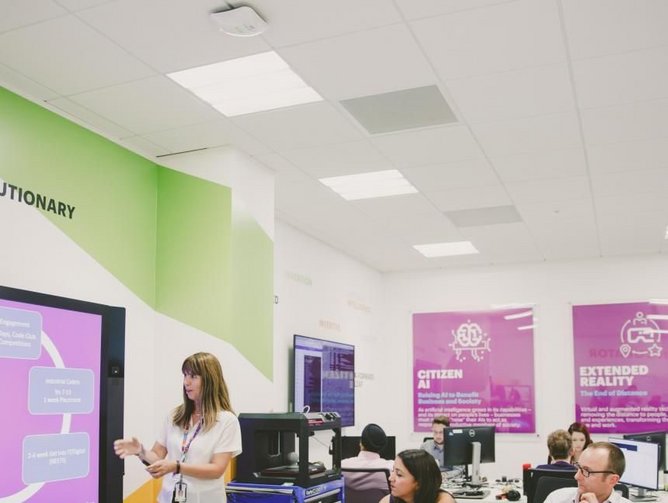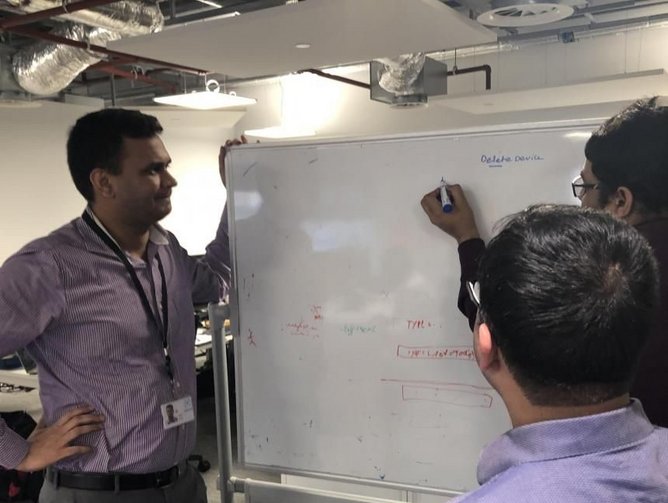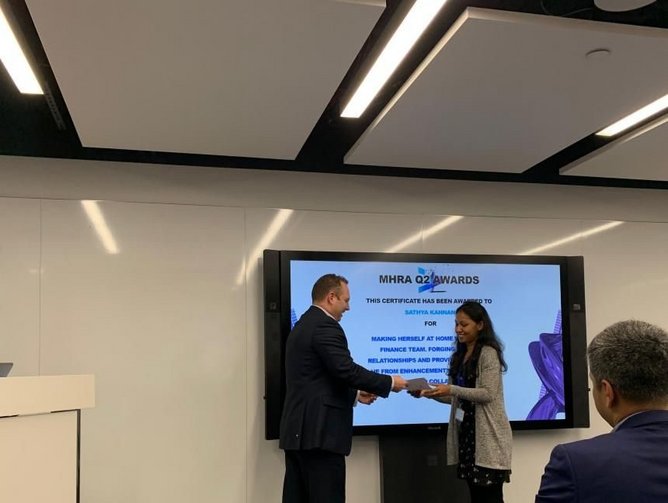Accenture is introducing new innovations for healthcare as part of its digital transformation
With companies worldwide undergoing significant digital transformations to redefine the way day-to-day operations in the workplace are conducted, it’s become vital to embrace and utilise the latest technological trends in order to obtain an edge over the competition.
As a global professional services organisation providing a range of different services such as strategy, consulting, technology, digital and operations, Accenture employs over 450,000 people and works across more than 120 countries worldwide. By ensuring customers’ demands are met and kept at the forefront of the firm’s priorities, Rob Gwyther, IT Transformation Director of Healthcare, understands how Accenture can continue to meet the requirements of its customers as it continues to develop as a company. Having worked for the organisation in a variety of roles since initially joining in 2005, Gwyther stepped into his current role as Director in late 2015. “When I first started at Accenture, a lot of the work we undertook in the public sector organisation was about the digitisation of manual processes to reduce paper and make the customers internal workflow more efficient. The focus was primarily on internal systems and workflow,” he explains. “However, with technology evolving significantly over the years, operations have become easier and the trend is now focused on how to provide more self-sufficient digital services to the citizen and focus more heavily on the citizens’ journey and experience.”
Embracing technology
With technological advances increasingly influencing the way businesses operate on a day-to-day basis, Gwyther understands the importance of ensuring new tools and solutions serves a purpose, as long as it aligns to the initial core strategy. “It’s vital to understand exactly what benefit you’re extracting from a particular type of technology or programme, however, most importantly that benefit must be aligned to a core strategy before you implement it in order to generate as much value as you can. It’s easy to get distracted,” he explains. “It's normally about looking at what really makes sense from a business value perspective and deciding what edge you’re gaining. With some of our customers, we recommend retaining older legacy systems that are still reliable or can be stabilised to support transformative services. That’s where it’s important to think about why you’re actually implementing technology and how the benefit aligns to an overall strategy. It’s natural to think about a straight technology replacement but it’s worth considering that if we stabilise the core of our business and then build a layer on top, it can actually yield greater benefits in shorter time.”
With innovation considered a key focus area for Accenture, Gwyther affirms the company’s commitment to setting trends in order to stand out from its rivals. “We’re a good systems integrator; we see a lot of what's out there in the market and it enables us to figure out what's relevant and useful to suit our needs. We’re constantly mapping out ways in which we can serve our customers better, and that continually pushes us to innovate and keep an open mind,” says Gwyther. “The big difference today in comparison to when I first joined is the coordination and the investment we make in innovation. Now, we have an innovation architecture and a formalised way of implementing innovation. When you look at the innovation centres we've got worldwide and the investment that goes into them, you see some of the real concentrated bits of innovative work and can really understand the leap forward we’ve made ahead of some of our competitors.”
Forming key partnerships
With a view to achieving and sustaining mutual success, some companies choose to collaborate and provide the other with services to help drive operations forward. In the case of Accenture, Gwyther outlines what he looks for when searching for a key technology partnership. “We identify companies where we can work alongside their leadership and which are aligned with our strategy in key priority areas. It’s important to consider what the suppliers roadmap looks like in terms of how they want to evolve their product, as well as what kind of engineering team they have at their disposal. If you've got a supplier that's willing to collaborate with you and who has a very like-minded outlook, then it’s a real asset because then you can then go to market with that supplier.”
Having established significant partnerships with BitTitan and Appian Corporation, Gwyther believes that these joint ventures will prove valuable to the company’s development. “Appian is more of a power platform which allows us to develop workflow and applications in an efficient way – it provides a single platform that enables any development we do or any application we need to build,” explains Gwyther. “BitTitan is a smaller company, but they've got a really concentrated bit of technology that allows us to do migrations to the cloud very quickly. It's that first stage you get when the customer from an on-premise environment into a cloud-based environment and BitTitan provide that very efficiently.”
With customers’ demands firmly at the forefront of Accenture’s decision making, Gwyther believes there are a number of key drivers in transformation in the industry that need to be observed. “Within health and public services, the industry has transitioned towards putting the citizen and patient first from a healthcare perspective. There's a greater focus on the customer-user experience than ever before,” he explains. “Going back a few years, customers wouldn't choose a startup or smaller company because of nervousness about the level of service they’d receive. However, there is some really great concentrated technology out there now that can be very useful. I look at our partnership with BitTitan and they’re a good example because although they have really great technology. Our partnerships are really useful and has become one of our key strengths.”
With the future in mind, Gwyther affirms Accenture’s relationship with its customers will be key to the business’ growth, development, and building a sustainable future. “The relationship we have with our customers is vital. It’s all about how we can continue to innovate and be proactive. We have a deep relationship with our customers and we try not to be one dimensional,” he says. “I think what’s really important to remember is that technology supports new ways of working, because when you see a trend emerging in one industry, sometimes it’s useful to embrace that and utilise it in another industry.”







